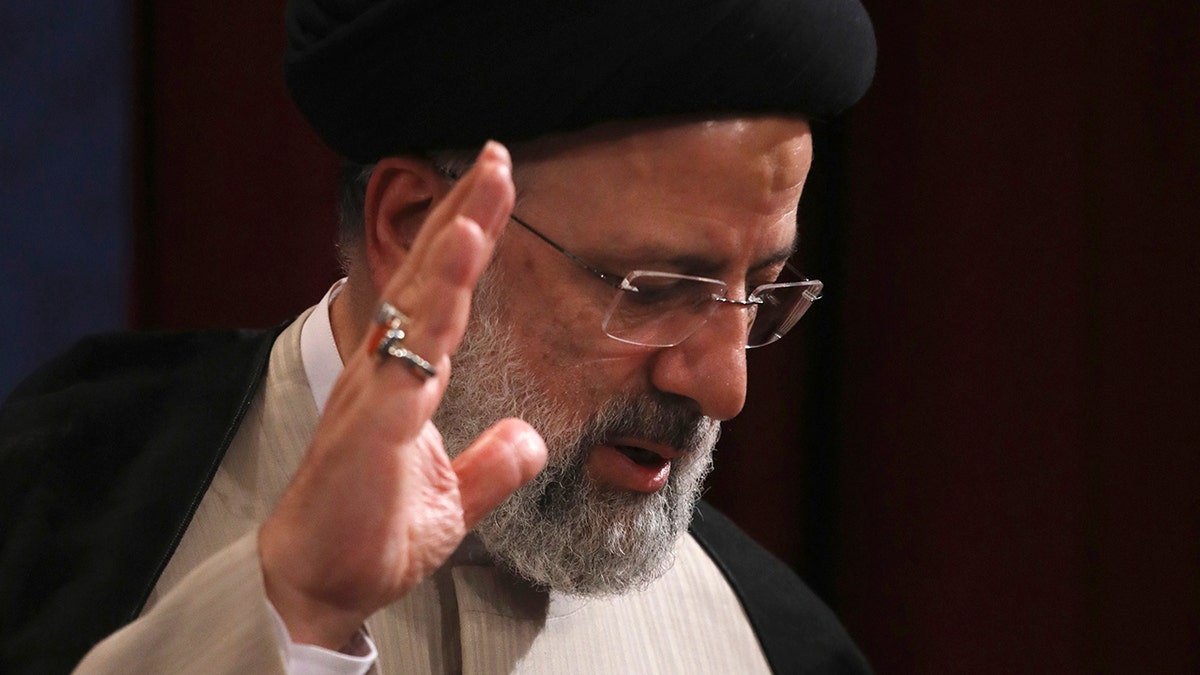What new leadership in Iran means for the US
National Security correspondent Jennifer Griffin reports on the shift of power in the Middle East.
Saturday's Iranian election, mired in controversy after a number of would-be candidates were disqualified, yielded the victory of Ebrahim Raisi, a hard-liner who is already taking a firm stance when it comes to U.S.-Iran relations.
Critics of the Iran nuclear deal entered into by former President Barack Obama and abandoned by the Trump administration cited its failure to address issues such as Iran's ballistic missile program. Raisi has already made it clear that this will not be on the table in the future.
IRAN'S PRESIDENT-ELECT WON'T MEET BIDEN, DEMANDS US ‘LIFT ALL OPPRESSIVE SANCTIONS’
"It's nonnegotiable," Raisi said, according to the Associated Press. He also flatly rejected the idea of meeting with President Biden.
At the same time, Raisi noted the importance of a deal, stating that sanctions relief was "central to our foreign policy."
Raisi himself faces U.S. sanctions due to his role in the 1988 mass executions of political prisoners, and when asked about this Monday he made clear that he has no regrets about his past actions.

In this June 21, 2021, photo, Iran's new President-elect Ebrahim Raisi waves at the conclusion of his news conference in Tehran, Iran. (AP Photo/Vahid Salemi) (AP Photo/Vahid Salemi)
"I am proud of being a defender of human rights and of people’s security and comfort as a prosecutor wherever I was," he said.
Raisi has been serving as the head of Iran's judiciary. Prior to that, he was prosecutor, taking on that role not long after the 1979 Iranian Revolution. His record in the justice system, however, has hardly inspired confidence in everyone.
"That Ebrahim Raisi has risen to the presidency instead of being investigated for the crimes against humanity of murder, enforced disappearance and torture is a grim reminder that impunity reigns supreme in Iran," Amnesty International’s Secretary-General Agnes Callamard said, according to the AP.
ISRAELI PM NAFTALI BENNETT WARNS US TO ‘WAKE UP’ BEFORE REJOINING IRAN NUCLEAR DEAL
The new leadership in Israel, an ongoing target of Iranian threats, responded to Raisi's election with a stern warning to the world.
"Of all the people that Khamenei could have chosen, he chose the 'Hangman of Tehran,' the man infamous among Iranians and across the world for leading the Death Committees, which executed thousands of innocent Iranian citizens throughout the years," newly-elected Prime Minister Naftali Bennett said at a weekly cabinet meeting on Sunday. "Raisi's election is, I would say, the last chance for the world powers to wake up before returning to the nuclear agreement, and to understand who they are doing business with. These guys are murderers, mass murderers."
Alex Vatanka, director of the Iran program at the Middle East Institute, called Raisi's election "a foregone conclusion."
"Supreme Leader Ayatollah Ali Khamenei took every step possible to make sure of it," Vatanka wrote in a blog post.
IRAN'S SOLE NUCLEAR POWER PLANT UNDERGOES EMERGENCY SHUTDOWN
Vatanka said the reactions to the election "removed any doubts" about the Islamist regime's waning popularity.
"Khamenei's oversight of the mass disqualification of aspiring candidates for the presidency was shameless and a wake-up call," he wrote. "Even supporters of the political order were aghast."
Vatanka pointed to the low voter turnout – officially 48% but possibly lower in reality, and 26% in Tehran – as evidence. Millions who did vote cast blank ballots in protest.
"What is amounting to a trend toward boycotting sham elections, where a handful of pre-approved men can run at the supreme leader’s pleasure, speaks to the depth of the legitimacy crisis Khamenei has created," Vatanka wrote.
The U.S. State Department also weighed in on the electoral process.
CLICK HERE TO GET THE FOX NEWS APP
"Iran’s restrictions on free expression and association fundamentally compromise the electoral environment," the State Department said. "Hundreds of political prisoners remain jailed, and we join the international community in calling for their release."
Iranian state media, however, blamed U.S. sanctions and the coronavirus pandemic, not an attitudinal change in the populace, for the low number of voters.
The Associated Press contributed to this report.













































